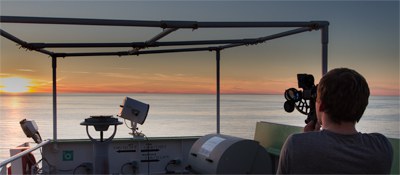Vertretung in Deutschland
Hermannstraße 15
20095 Hamburg
Phone: +49 40 37 85-870
Fax: +49 40 37 85-87 87
Mail: abshamburg@eagle.org
Bureau Veritas (BV)
Vertretung in Deutschland
Veritaskai 1
21079 Hamburg
Phone: +49 40 236 25-0
Fax: +49 40 236 25-422
Mail: info@de.bureauveritas.com
China Classification Society (CCS)
Kühnehöfe 1
22761 Hamburg
Phone: +49 40 38 60 890
Mail: ccs@ccs.org.cn
DNV
Vertretung in Deutschland
Brooktorkai 18
20457 Hamburg
Phone: +49 40 361 49-0
Fax: +49 40 361 49-74 96
Mail: headoffice@dnv.com
Lloyd's Register (LR)
Vertretung in Deutschland
Überseeallee 10
20457 Hamburg
Phone: +49 40 34 97 00 10 100
Mail: hamburg-marine-services@lr.org
Nippon Kaiji Kyokai (ClassNK)
Vertretung in Deutschland
Spaldingstraße 77a
20097 Hamburg
Phone: +49 40 23 30 32
Fax: +49 40 23 08 63
Mail: hb@classnk.or.jp
Korean Register (KR)
Vertretung in Deutschland
Baltic Carrée, Am Kaiserkai 13
20457 Hamburg
Phone: +49 40 88 91 37 91
Fax: +49 40 88 91 37 92
Mail: hamburg@krs.co.kr
Registro Italiano Navale (RINA)
Vertretung in Deutschland
Schellerdamm 2
21079 Hamburg
Phone: +49 40 28 41 93-550
Fax: +49 40 28 41 93-551
Mail: hamburg.marine@rina.org
Classification societies
- Tasks of classification societies
- Classification on behalf of the shipowner
- Authorization by flag states
- Tasks on behalf of the German flag state
- Overview: Which class may perform which tasks?
Tasks of classification societies
Classification societies are private companies acting as technical experts in ship safety. Tasks of classification societies, often referred to as „classes“, are twofold:
- Classification on behalf of the shipowner
- Performance of statutory tasks on behalf of flag states.
Classification on behalf of the shipowner
The original role of classification societies is to check a ship for compliance with their own class rules. On behalf of the shipowner classification societies certify compliance with such rules as regards type, construction, equipment, maintenance and surveys of ships. Class surveyors inspect ships at regular intervals. If a ship complies with the class rules, „class“ is assigned with the issuance of class certificates. The purpose of class is the evaluation of the ship’s properties with regard to sales of ships and insurance of ships and cargoes. Class also reflects the seaworthiness of a ship and establishes the range of service. All seagoing ships operating as passenger ships or cargo ships must be classified.
Authorization by flag states
In many states classification societies perform statutory duties concerning ship safety on behalf of flag state administrations. In this context classification societies ensure compliance with statutory instruments, i. e. the technical safety requirements of the International Maritime Organisation (IMO) (so called statutory instruments) and issue international ship safety certificates.
The scope of authorization differs from state to state. Some flag states delegate nearly all of their tasks to classification societies, others, e. g. Germany, only delegate individual, narrowly defined duties.
European flag states may only delegate their responsibility for ship surveys to classification societies which are regconized by the European Commission based on Regulation (EC) No 391/2009. Generally, they are congruent to one of the „quality“ classification societies which are members of the International Association of Classification Societies (IACS). Each flag state makes its own choice from these classification societies and their scope of authorization. Only the societies chosen by the flag state may act as a „Recognized Organization“ (RO) on its behalf. In the context of security additional provisions apply. Here, classification societies act as "Recognized Security Organizations" (RSOs).

Tasks of classification societies performed on behalf of the German flag state
The main tasks of authorized classification societies on German-flagged ships are as follows:
- Pre-examination of construction drawings and documents,
- Surveys of ships, especially abroad,
- Issuance of interim certificates and preliminary documents.
The recognized classification societies work in following areas for the German flag:
- ship safety and protection of the marine environment (SOLAS, ISM, Load Line, MARPOL),
- navigational and radio equipment,
- security (ISPS),
- maritime labour law.
A classification society may only work on the flag state's behalf if it has been authorized by the German flag state adminsitration for the individual area. When a classification society has been authorized, a class surveyor does not need an individual permission by the administration to work.
Overview: Which class may perform which tasks?
The following overview shows which class may work for the German flag state in the individual areas.
| Classification Society | Ship safety and marine pollution | Navigational and radio equipment | Security (ISPS) | Maritime labour law |
|---|---|---|---|---|
| X | X | X | X | |
| X | X | X | X | |
| X | X | |||
| X | X | X | X | |
| X | X | X | X | |
| X | X | X | X | |
| X | X | X | ||
| X | X | X | X |
Regarding navigational and radio equipment the classes work as recognized institutions for the Federal Maritime and Hydrographic Agency (BSH). The recognized institutions for the verification of navigational and radio equipment can be found on this complete list.
In the cases where classification societies perform tasks for the security (ISPS) sector, they act as Reconized Security Organizations (RSOs). The main tasks of a RSO for the German flag are the pre-verification of ship security plans and the performance of ISPS verifications on board seagoing ships under German flag.

